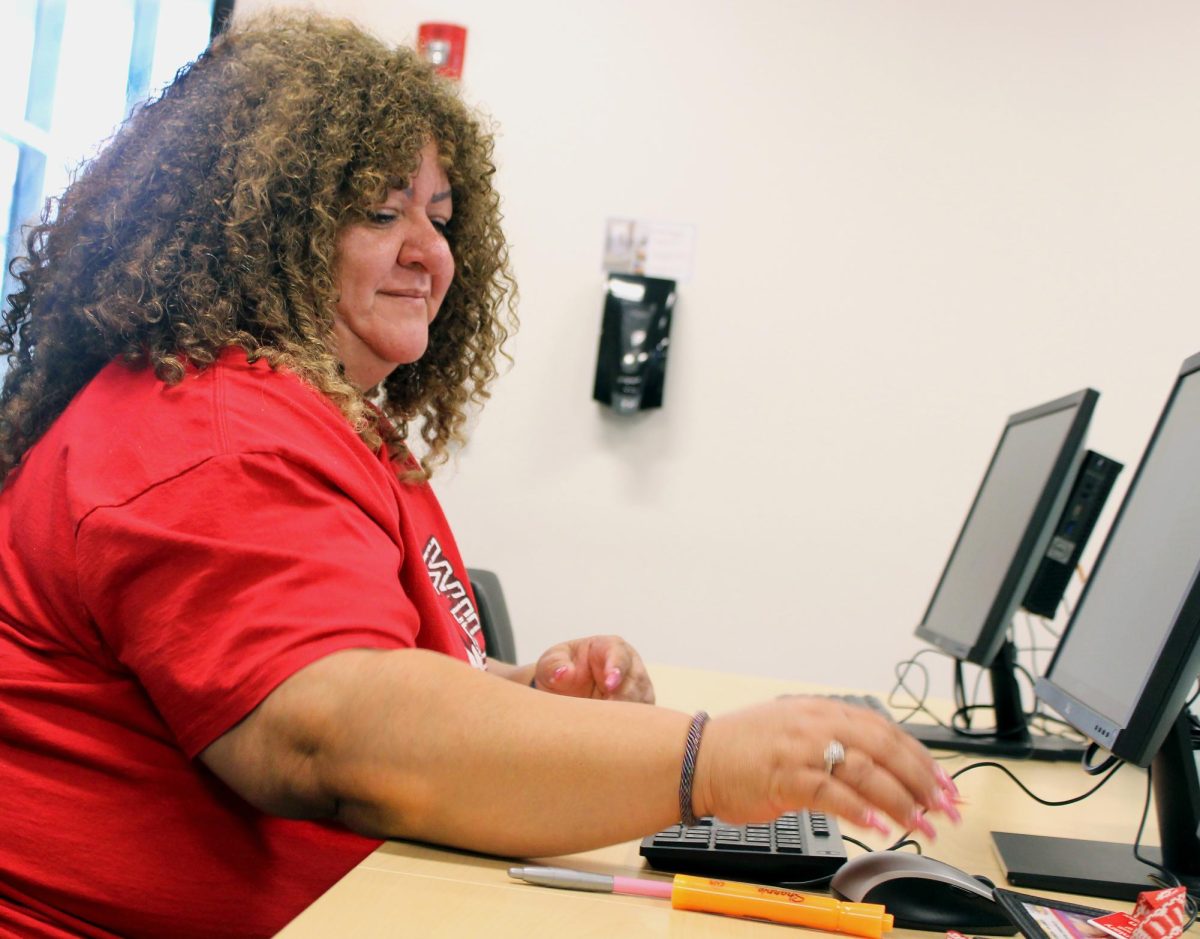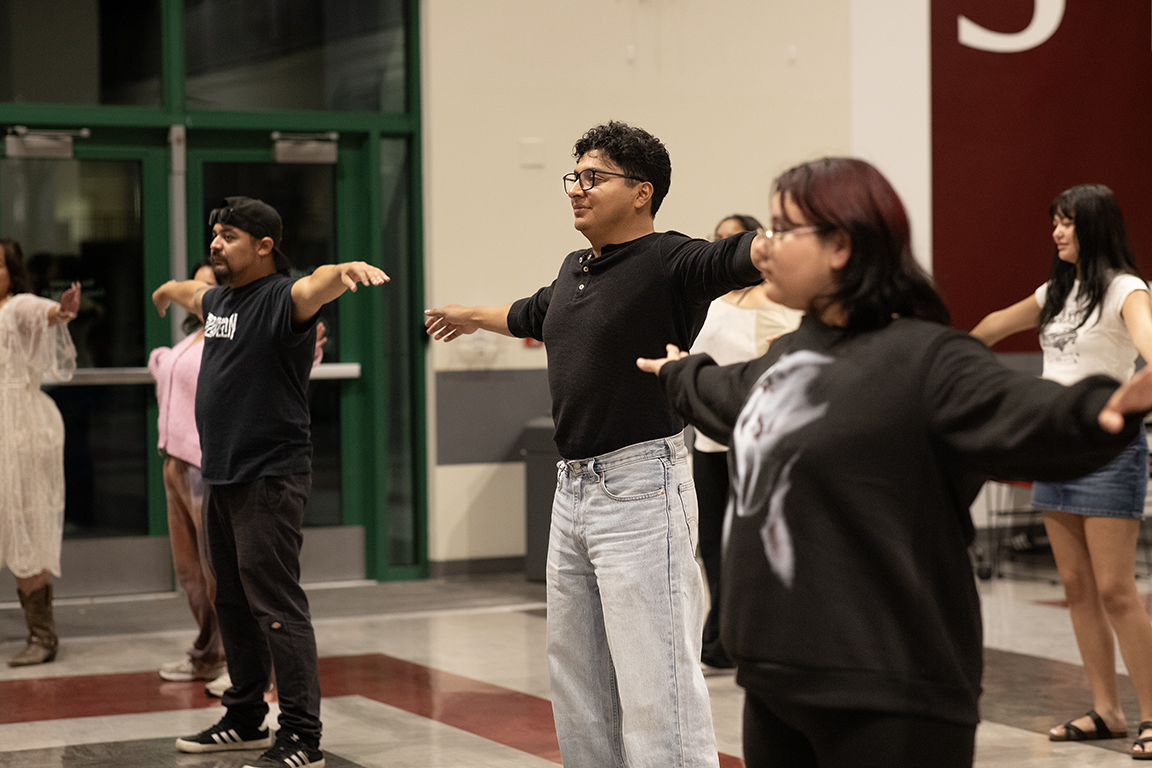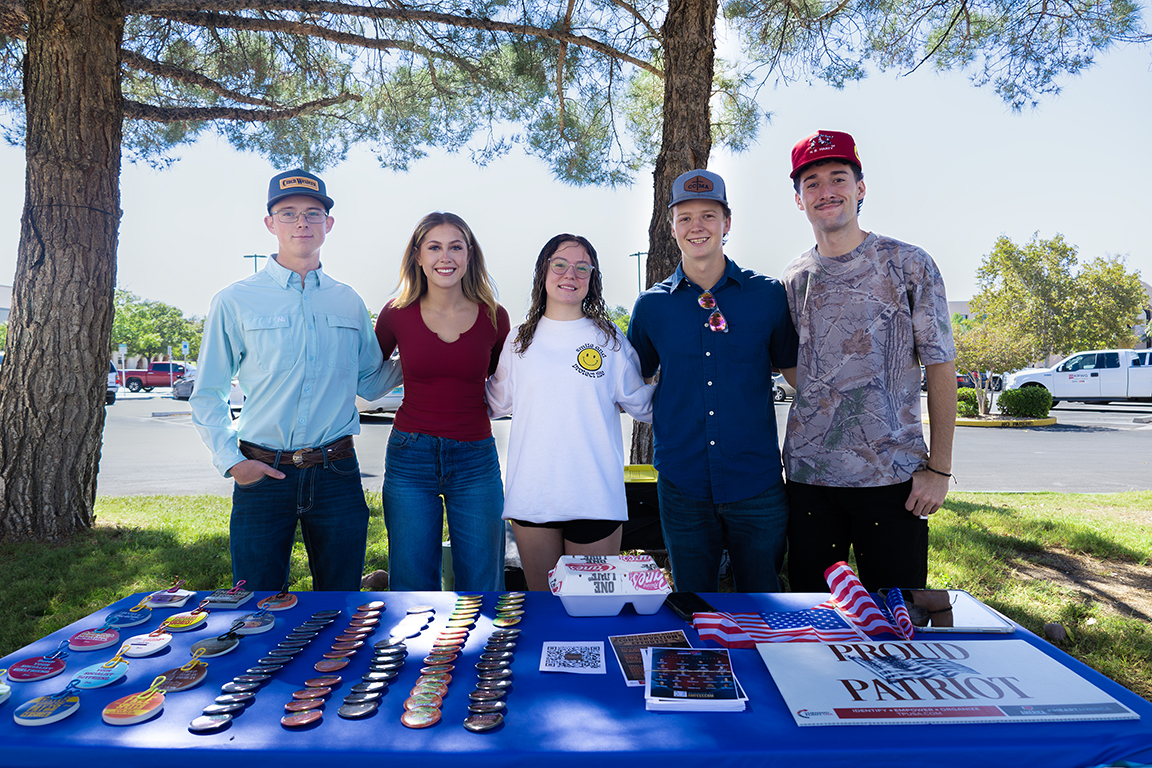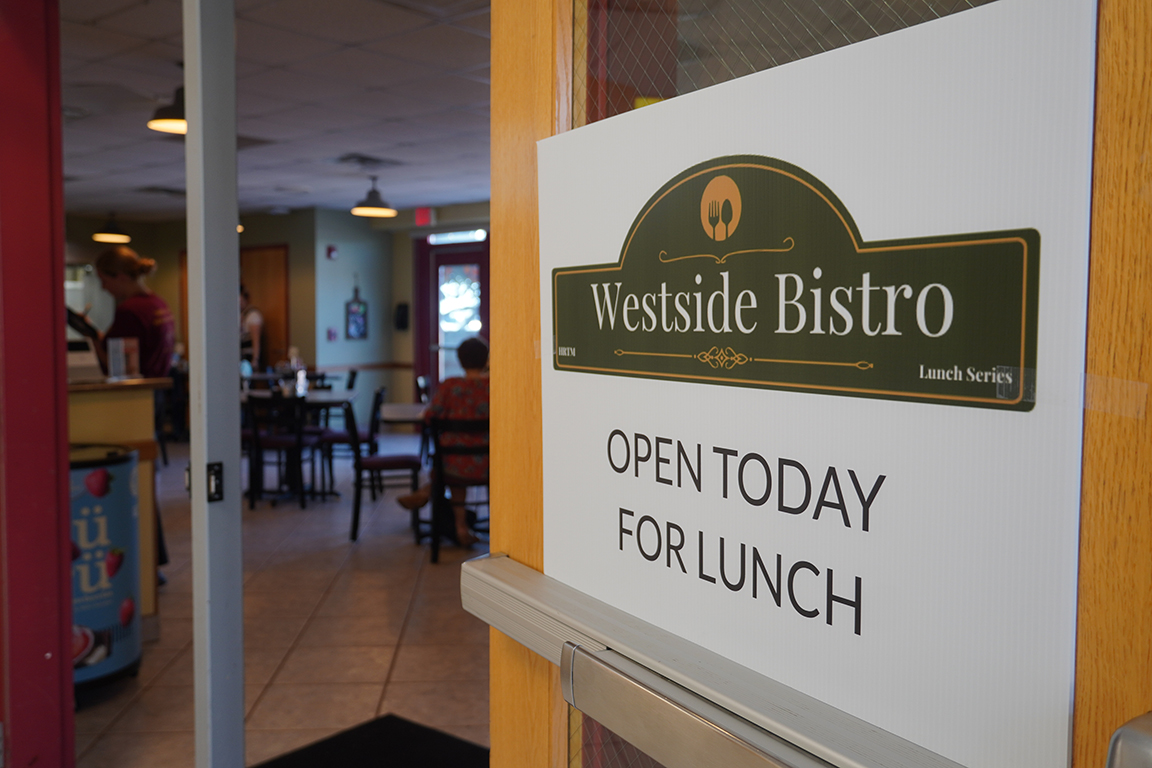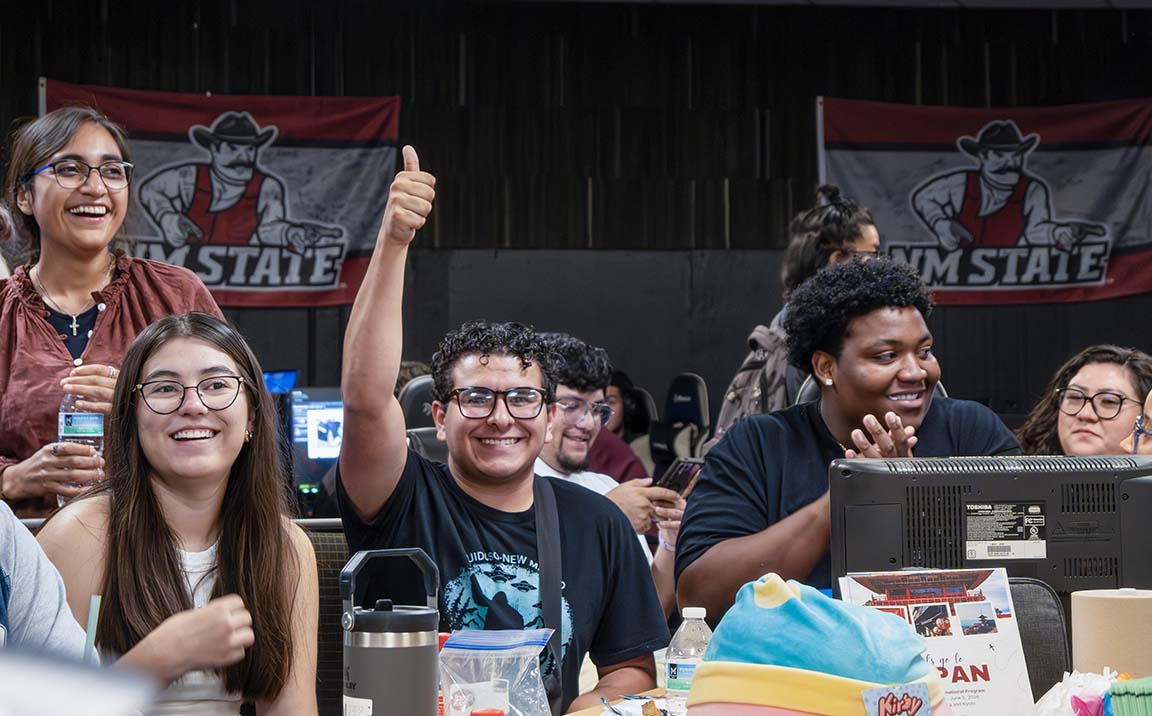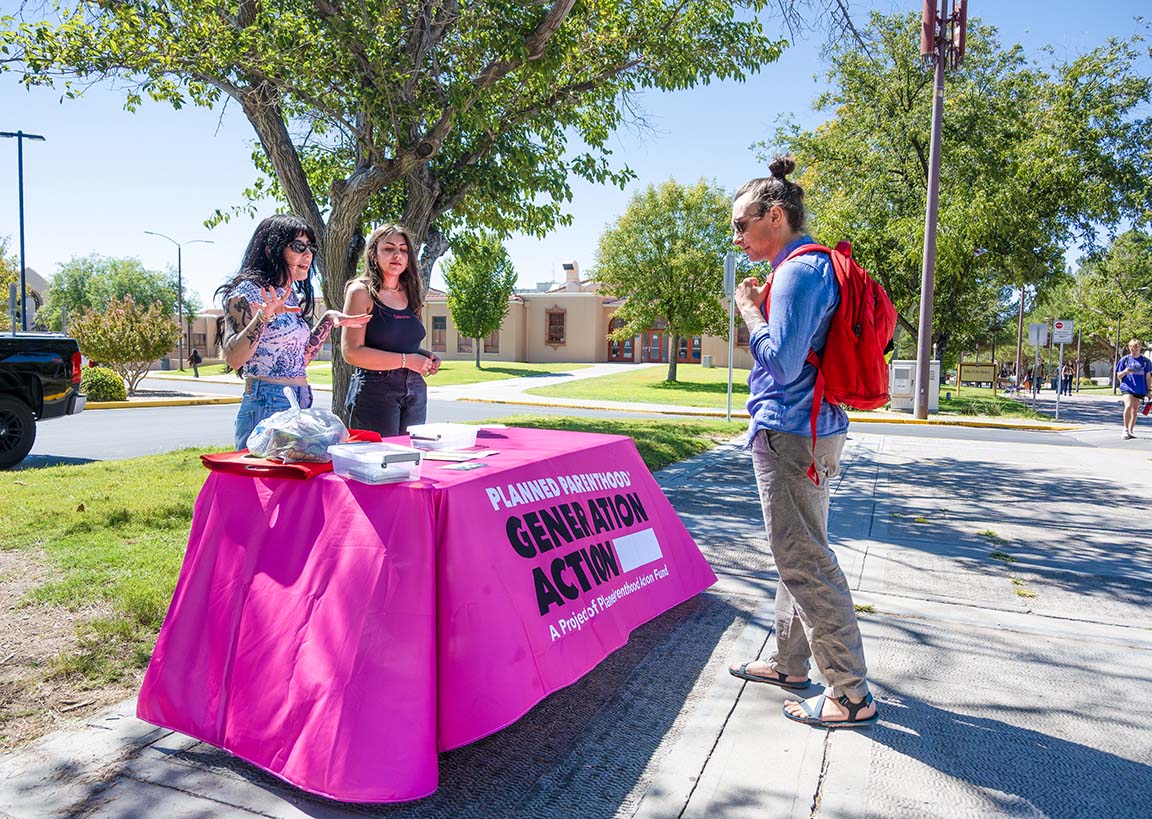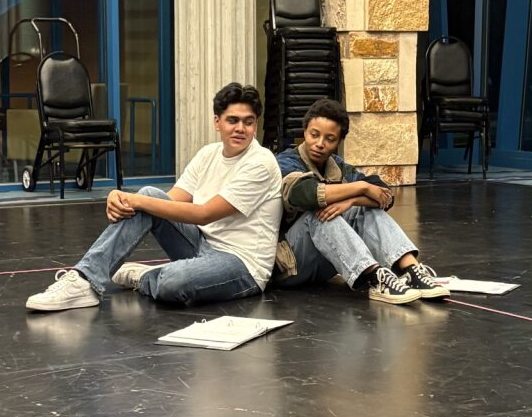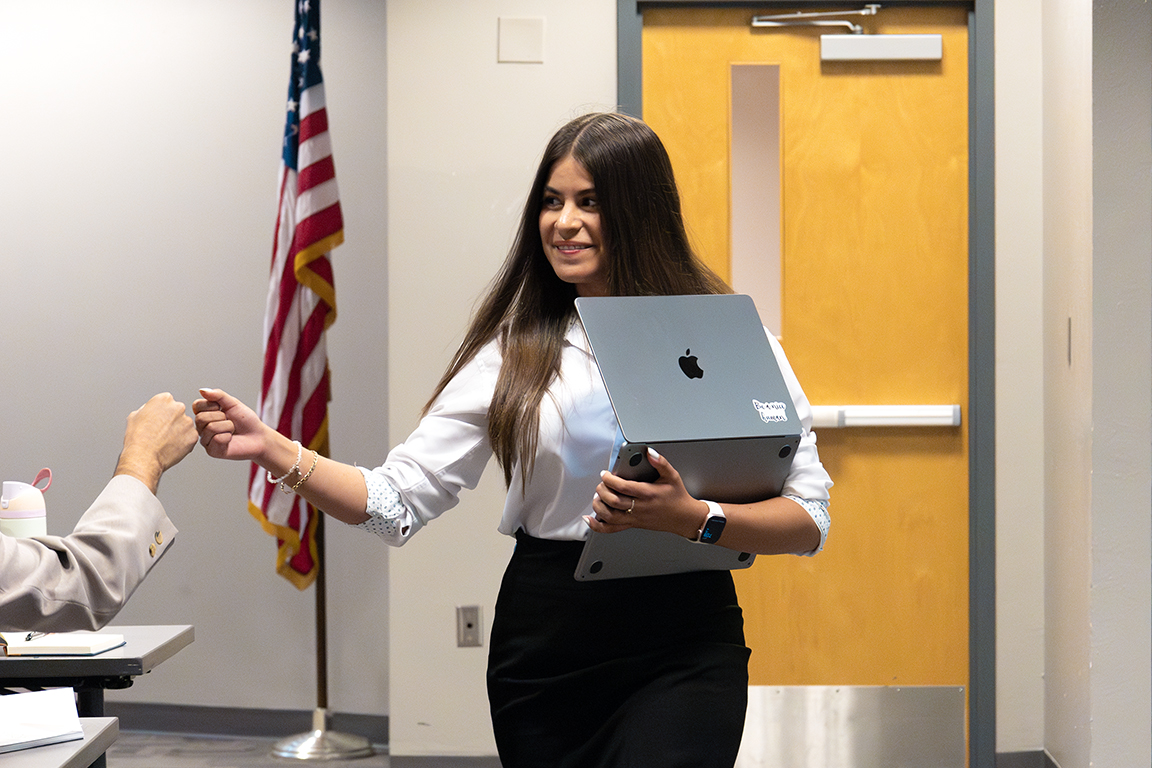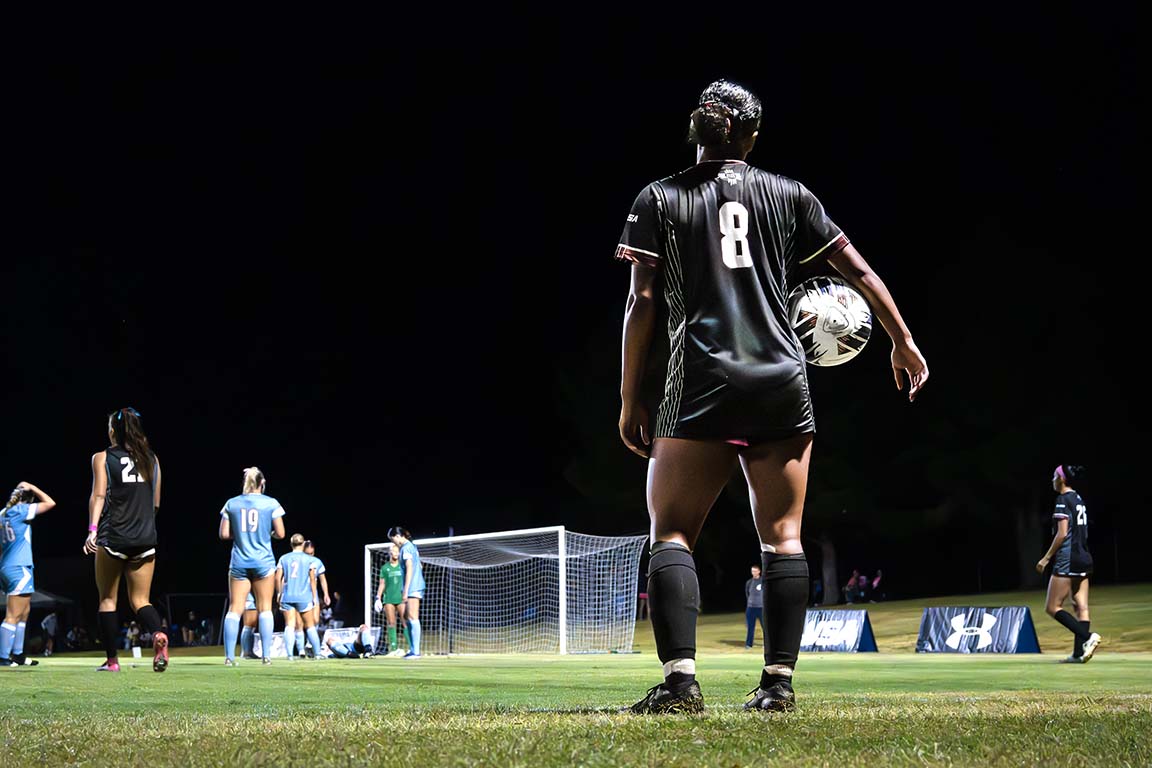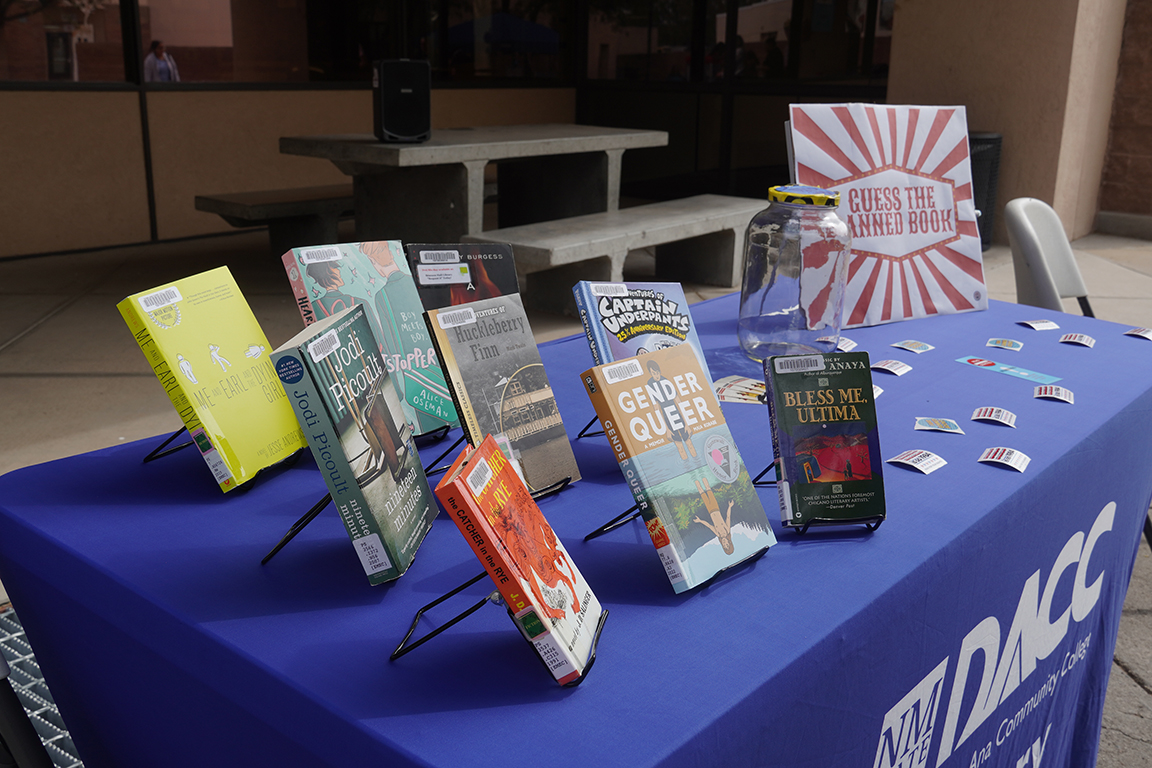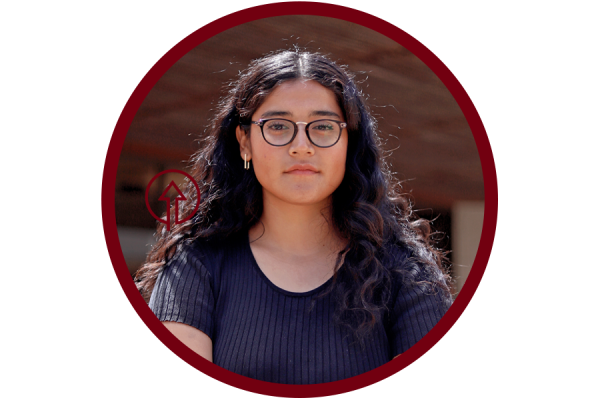Refugees gain technology skills through an information workshop in the College of Business, which empowers them to enter the workforce and take their education seriously. The workshop is part of a grant that the Kellogg Foundation awarded to Rajaa Shindi, an assistant professor in the Department of Accounting and Information Systems, to support her work in improving the lives of refugees.
“The grant’s objective is to serve and support refugees and immigrants in Doña Ana County,” Shindi said. “So, we started with them. In the beginning, some of them needed English as a Second Language classes, and then we moved them into job readiness and career readiness.”
One of the main objectives of the class is to prepare students for the workplace. Many students come to Shindi’s class with little prior knowledge of how to use technology. Becoming familiar with technology helps both with getting an education and a career.
“What we’re doing is the bridge between their employment right now and a better employment opportunity,” Shindi said.
One student said that before the workshop, they didn’t know anything about computers, but now it is “very good” for them.
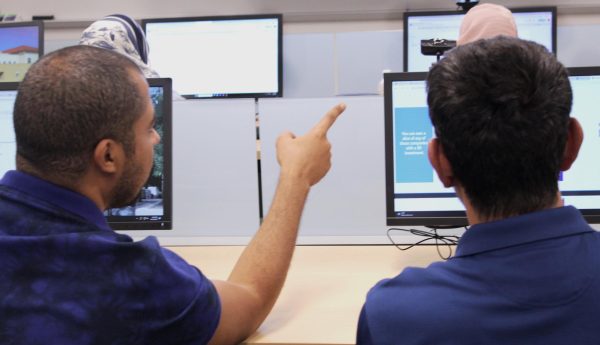
“When we start college or the university, we use the technology to do the homework assignments every day and if we get a job, we need it for that,” added another student.
In the workshop, students also build on skills they already have, so that they can find jobs that suit their talents.
“Most of them like to stay within their work that’s comfortable…They’ve been doing it for years and they have the skills,” Shindi explained. “They’re already talented, so why not? We just need to prepare them for that.”
The workshop doesn’t only provide students with skills for the workforce, but also connects them with employers, which gives them a greater chance of getting a job.
“We’re working with the workforce center to see who hires, [for example], project manager…we always try to find local jobs that offer this type of job that requires this set of skills,” Shindi said.
Some students taking the class already have a job, and are in the workshop to help them improve in their current positions. Crystal Aragon, one of the students in the class, works for Las Cruces Public Schools, and is taking the class to learn how to use the technology available in schools.
“I’ve been here for a long time, but I thought, I can always benefit because technology is my weakness,” Aragon said. “Before I came to the school district, I didn’t use as much technology as I use here, so I was behind, and always asking for help. I’ve learned a lot just being here, in the school district, but I don’t like to be asking and I need to learn. So that’s why I took the class.”
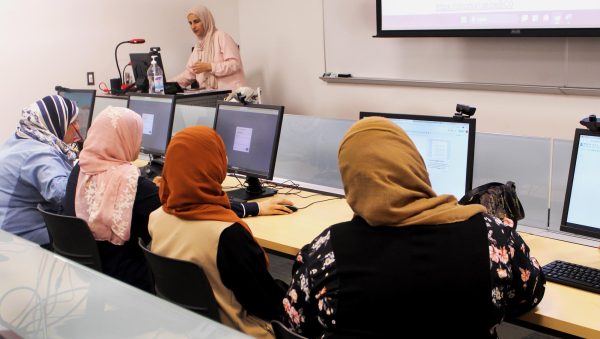
Another goal of the program is to teach refugees to make their education a priority. In the process of leaving one’s home country, survival can become the top priority, and education gets pushed back. This workshop aims to instill in the refugees that their education is important.
“We don’t want the education to be shifted to be the last priority, right?” Shindi explained. “Because we all know education is way too important… I always remind them to set this education priority and give it a higher priority in their list of things, because eventually they will be rewarded.”


